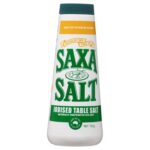Food Graves Disease
Food Graves Disease Patients should and shouldn’t eat.
Living with Graves Disease
Graves’ disease is an autoimmune disorder characterized by the overproduction of thyroid hormones, leading to hyperthyroidism.
This condition occurs when the immune system mistakenly attacks the thyroid gland, causing it to produce excessive amounts of thyroid hormones. Common symptoms include weight loss, rapid heart rate, anxiety, and fatigue.
Naturopath and Nutritionist Leah has firsthand experience with Graves’ disease which not only fuels her professional commitment to holistic wellness but also imparts a profound understanding of the challenges individuals face.
firsthand experience with Graves’ disease which not only fuels her professional commitment to holistic wellness but also imparts a profound understanding of the challenges individuals face.
Her journey has inspired a specialised approach to nutrition, blending conventional wisdom with naturopathic insights to empower others in their quest for healing and vitality. Her Motto of No Judgment and Realistic Goals means she will work with you to be the healthiest you can be.
In this blog, She is going to provide a list of foods to eat and to avoid with Graves disease. Of cause this is an over view. Everyone is slightly different and you may benefit from a more personalised diet.
While food can impact your thyroid, a diet alone can’t reverse Graves Disease. There are herbal tonics that can assist and sometimes you just need to go onto medications. I have found that food does impact how I feel so which ever way you decide to go a naturopath and nutritionist can be of assistance with your diet and managing your Graves Disease.
What to Food is good to eat with Graves Disease
Quick Answer
- Adequate Protein, plant-based, meat, chicken or Fish.
- Calcium-rich antioxidant vegetables and fruits
- Water
Detailed answer
Protein
Plant Based
Fish:
Individuals with Graves’ disease can benefit from incorporating fatty fish into their diet due to the valuable nutrients they provide, particularly omega-3 fatty acids. Omega-3s play a crucial role in reducing inflammation, which is beneficial for managing autoimmune conditions like Graves’ disease. Here are some recommended fish for individuals with Graves’ disease:
1. Salmon: Rich in omega-3 fatty acids, salmon helps counter inflammation and supports overall cardiovascular health. Additionally, it provides selenium, a trace mineral important for thyroid function.
2. Mackerel: Another excellent source of omega-3s, mackerel contributes to anti-inflammatory effects in the body. It also contains essential nutrients like vitamin D, which plays a role in immune system modulation.
3. Trout: Trout is a nutrient-dense fish that offers omega-3 fatty acids along with essential vitamins and minerals. Including trout in the diet can contribute to overall health and thyroid support.
4. Sardines: These small, fatty fish are packed with omega-3s, calcium, and vitamin D. Sardines offer a potent nutritional punch, supporting both cardiovascular health and immune function.
5. Herring: Herring is a good source of omega-3 fatty acids and contains vitamin D. Incorporating herring into the diet can contribute to a well-rounded approach to managing Graves’ disease.
Including a variety of these fatty fish in your diet provides not only essential omega-3s but also other nutrients vital for thyroid health.
AIP Autoimmune Protocol Diet
What food to AVOID with Graves DiseaseThe Autoimmune Protocol (AIP) diet has gained recognition for its potential benefits in managing autoimmune conditions and promoting overall health. This elimination diet focuses on removing foods that may contribute to inflammation and immune system imbalances. For more details about the Autoimmune protocol diet click here.
What Food to AVOID with Graves Disease
What Food triggers Graves Disease?
While technically no food can trigger Graves disease I know from personal experience after eating certain foods, I feel not right. Unless you have had the experience it’s hard to describe the “not well” feeling. I have found if I avoid the foods below I tend to feel healthier.
High Iodine Foods: Salt and Seaweed
Excessive iodine can exacerbate symptoms of Graves’ disease.
This one can be controversial, as some people with Graves Disease may need Iodine. I usually recommend my  patients to limit their intake of high-iodine foods such as iodized salt, seaweed, and certain seafood, until we have complete blood studies including iodine levels.
patients to limit their intake of high-iodine foods such as iodized salt, seaweed, and certain seafood, until we have complete blood studies including iodine levels.
Please double-check your table salt and see if it has iodine in it.
Gluten:
I often recommend avoiding gluten to my clients with this condition.
Gluten, found in wheat, barley, and rye,  can potentially contribute to increased intestinal permeability or “leaky gut.”
can potentially contribute to increased intestinal permeability or “leaky gut.”
This phenomenon may lead to the release of undigested particles into the bloodstream, triggering an immune response that could worsen inflammation in individuals with autoimmune disorders like Graves’ disease.
By steering clear of gluten-containing foods, my clients aim to create a supportive environment for their immune system, reduce inflammation, and promote overall health.
However, it’s crucial to note that dietary choices are highly individual, and I always advocate for a personalised approach, considering each person’s unique health needs and sensitivities.
Caffeine:
Caffeine can be a double-edged sword for individuals managing Graves’ disease.
While many may enjoy the immediate energy boost and alertness that comes with their daily cup of coffee, (read Leah is not giving up her morning coffee)  it’s crucial to consider the potential impact on hyperthyroid symptoms.
it’s crucial to consider the potential impact on hyperthyroid symptoms.
Caffeine can stimulate the nervous system, exacerbating symptoms such as increased heart rate, palpitations, and heightened anxiety—common challenges for those with Graves’ disease.
As a naturopath and nutritionist, I often encourage my clients to be mindful of their caffeine intake, suggesting alternatives like herbal teas or chicory coffee to mitigate potential stimulatory effects.
By making informed choices about their daily brew, individuals with Graves’ disease can strike a balance between enjoying a comforting ritual and supporting their overall well-being.
It’s all about personalised adjustments that are realistic and that contribute to a healthier and more balanced lifestyle.
Large fish:
When managing Graves’ disease, individuals should exercise caution regarding their fish choices to support optimal thyroid health.
Certain fish, particularly larger predatory species such as shark, king mackerel, and swordfish, should be limited or avoided due to their potential higher mercury content.
Mercury is a heavy metal that, when consumed in excess, may adversely affect thyroid function. Elevated levels of mercury can contribute to inflammation and may exacerbate symptoms associated with autoimmune conditions like Graves’ disease.